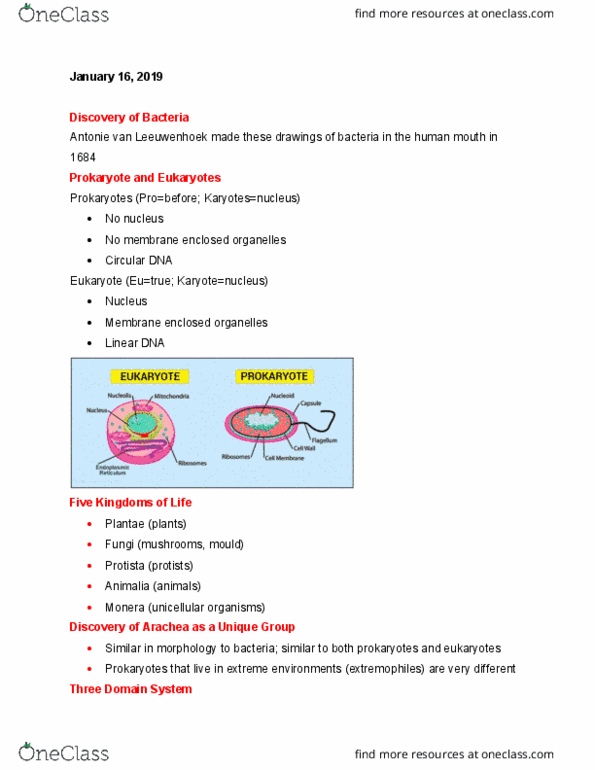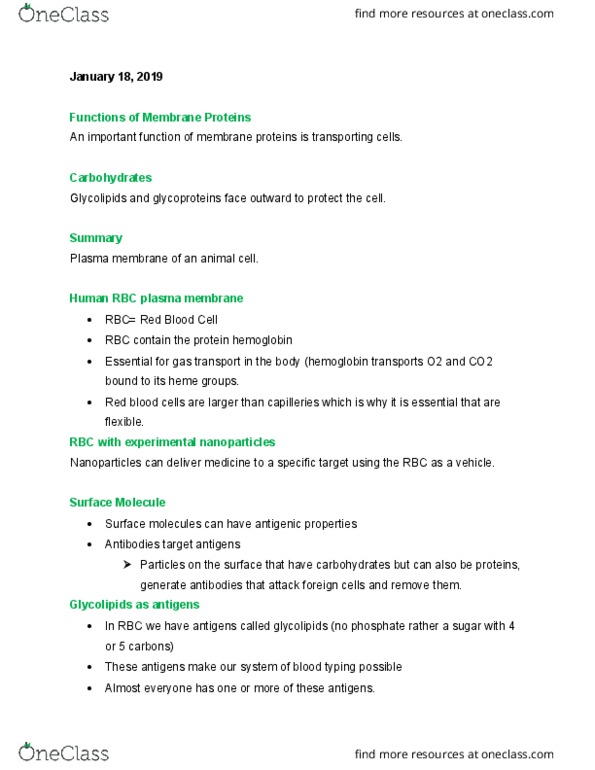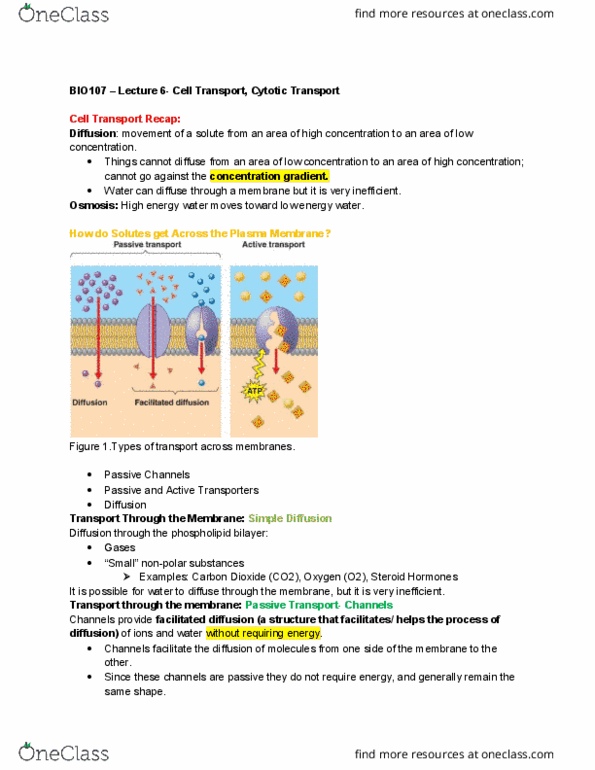BIOL107 Lecture Notes - Lecture 5: Glycolipid, Antigen, Blood Type
BIOL107 verified notes
5/7View all
Document Summary
An important function of membrane proteins is transporting cells. Glycolipids and glycoproteins face outward to protect the cell. Nanoparticles can deliver medicine to a specific target using the rbc as a vehicle. Surface molecule: surface molecules can have antigenic properties, antibodies target antigens. Particles on the surface that have carbohydrates but can also be proteins, generate antibodies that attack foreign cells and remove them. In rbc we have antigens called glycolipids (no phosphate rather a sugar with 4 or 5 carbons: these antigens make our system of blood typing possible, almost everyone has one or more of these antigens. The a, b and o alleles: o, recessive: a single guanine deletion encodes a non-functional enzyme. Integral membrane proteins as antigens: a specific primary structure of rh transmembrane protein is responsible for the d antigen, most people have the d antigen. The d antigen gives the positive sign to the blood types. Gives the rh factor its (+) sign.




